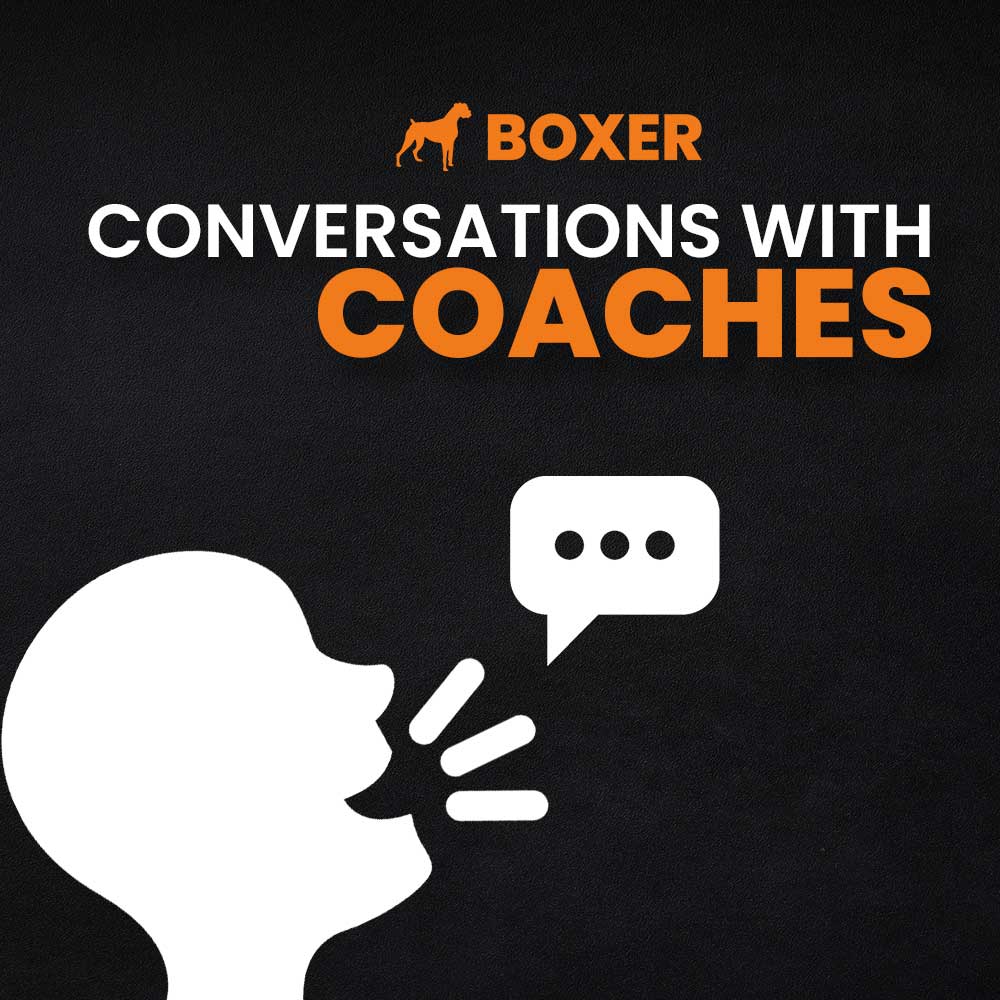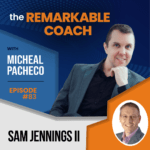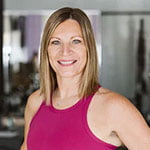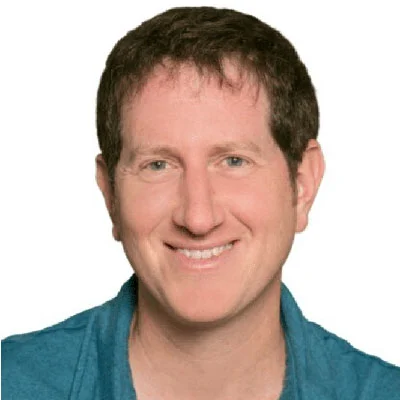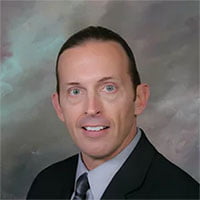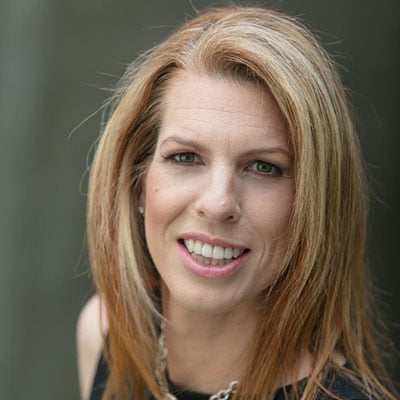Kevin Stafford 0:00
Hello, and welcome to another episode of the conversations with coaches podcast. I am your host, Kevin. And today I had the pleasure of interviewing Dr. Sam Jennings the second. You like you like the second? Do you like Junior? Not sure
Sam Jennings II 0:13
what the second is there to prevent the junior? Oh,
Kevin Stafford 0:17
very nice. Very nice. Yes, it just sounds very formal. And I like it. Right, right. Dr. Sam for short, a stealth coach for decades. Dr. Sam is now a leadership strategist for mid level professionals who are responsible for leading leaders. Sam, thank you for being here. I’m so glad to get to talk to you for a while.
Sam Jennings II 0:37
Yes, totally. My pleasure. And as we proceed, Sam is just fine. Dr. Sam is fun. But let’s just go Sam.
Kevin Stafford 0:43
I like a fine. And I like a fun. So let’s get started at the start, more or less? How did you how’d you discover find out? Begin to become a coach, obviously, you had a stealth beginning, as you indicated in your little bio, right? But how did that develop and mature and grow into your own coaching business.
Sam Jennings II 1:08
So the stealth aspect was my background in higher education, I’d been doing Student Affairs work, which is the non academic side for a couple of decades. And then life circumstances happen, we chose to leave we be me and my family chose to leave the Midwest moved to the Pacific Northwest to help out with parents and that kind of thing. And once I had that separation, I tend to think about what I like about higher ed. And it was the individual service to the students, as well as colleagues, other staff and helping other people see their circumstances for what they are, and as how they perceive them. And then how to move forward. I realized, well, this is nonsense. I’ve been a coach my whole career, I just wanted to call the coaching. And then once I realized that I was able to move towards an accreditation, some more learning and more engagement and started my own business. And it’s been fabulous. Being able to help grownups unpack their stuff to the degree that’s not therapy, of course, but is helping them see what’s going on, as somebody much wiser than me said, you can’t read the label if you’re inside the box. So I helped to read the label and then decide what to do.
Kevin Stafford 2:17
I liked that a lot. I think I think that might be the title of the episode. I really, really love that. Right? Right. It’s kind of it’s that kind of simple wisdom. It’s like, Oh, of course. But that’s that’s exactly what it is. And I really love the fact that like, and you have this in common with a lot of other coaches too, although they don’t always articulate it quite so well as you just did. But you kind of realize that you just you were already coaching, you just didn’t have that word for it. And so once you have that word, it helps you to distinguish what coaching actually is. And when it does different from saying and you made a great example there therapy because coaching is not therapy. They do have some they serve a similar purpose, but very distinctly and very differently from each other. And I feel like just having the word coach makes such a difference in what you’re able to do and how you’re able to help.
Sam Jennings II 3:04
Absolutely. In coaching and therapy, you’re sure they may be in the same neighborhood but they don’t reside each other’s houses is absolutely separate and necessarily so
Kevin Stafford 3:14
it’s another that’s another good one. They might be part of the same HOA but they’re they’re living in they’re living on separate property.
Sam Jennings II 3:19
Exactly right.
Kevin Stafford 3:22
So let’s, let’s let’s jump forward to the present. I’m sure there’s plenty of stories you have over the decades. But what does your coaching business look like today? Who do you coach? How do you coach them? Are you typically more one to one do you do like small group or mastermind coaching keynote speeches, and you know, all of the above? How do you how do you go about coaching? And who do you coach?
Sam Jennings II 3:42
For sure. So my primary client is individual, which I get a real charge out of because it gives them an opportunity to put away the veneer, put away any protections and just be real and honest with somebody who’s not going to write their evaluation, has no say over their promotion is just another human who’s got some experiences they can bring to bear in terms of perspective and points of view. That’s the bread and butter for me. I love those conversations. Of course, like many of us, I’m not going to disregard the other experiences of God. And so I do workshops, presentations, I’ve got one coming up on burnout here in the next month. But really the individual service is huge because I like to say I help leaders, lead leaders love the cascading effect of a good leader who can affect the whole culture by virtue of being reasonably competent their job and sadly, some folks that we see not in our clients, of course, other people, those people, they mix up being a boss and being in charge and being a manager with leadership and therefore it gets convoluted and the experience employees have is less because of that.
Kevin Stafford 4:54
And I love that you kind of you said the quiet part right out loud, just reasonably competent. Just reasonably, you’re not asking for a whole lot to be able to do a whole lot. And that’s that’s and I love the way that you just it’s, it’s almost when you when you allow yourself to hear it, you’re almost slightly offended but in a positive way where you’re like, you know what that white bar is not that high for me to be doing so much more good as a leader. And I love the way that you you approach it, because leadership always has that sort of magnifying cascading radiating effect. A good leader is always leading those around them and inspiring better leadership and those around them as they lead other people in their own spheres in their own circles.
Sam Jennings II 5:34
Right. And I’m going to pick up on that piece of the description because you know, folks might have a quick bristle reasonably competent, no, I am awesome. Yes, you may be. But we throw around descriptors like superstar Rockstar, all these kinds of things that who really is honestly, and the people who are that in their job, maybe they’re not that at home, we want to hold people to be able to show up and be their whole selves at work in their whole selves away from work. So if it’s a incremental change, that’s a win, let’s take that run, we don’t need to go from 49%, good to 99%. Good. Let’s go 49 to 50, let’s go 5051. Let’s make those changes. So can become habit and part of how you do what you do.
Kevin Stafford 6:21
It’s it really is about building those habits, a lot of people they will get caught up. And this is this is I mean, I’ve tripped over this. So many times in my life, I’ve lost count where i i begin to get that feeling of forward momentum, and that sense of what’s possible. And then I want to do it all at once I want to go I want to go from 45 to 99. Or up to, you know, up to whatever up to 11. If we’re if we’re talking. And it’s great to have that feeling that feeling is fine. But then what will happen is you won’t get there as soon as you think or as soon as you decide that you should or you’ll or you’ll meet an obstacle or your head will stumble, and you’ll lose that momentum. And what what really helps for me is realizing that that momentum occurs not just on the big swings, but it occurs every single day, every tiny step forward, every habit established is momentum. And it needs to be acknowledged so that you can keep that going. I think that’s yeah, I mean, I know it sounds like just regular old folk wisdom. But yeah, you got to do a little bit every day.
Sam Jennings II 7:19
And sometimes the folk wisdom is there because of a reason that kind of works. And it makes sense.
Kevin Stafford 7:26
Also, I love and I’m just finding all these different places to attach and what you’re talking about I love like the thinking about how people like they think about rockstars, the superstars or whatever. And then you know what they’re few and far between, that’s kind of what makes them rock stars. If everybody were a rock star, there wouldn’t be rock stars. But also it’s like that’s, that’s a role that is a particular role. And around the rock stars are all the people who play the instruments and set up the stage and drive the tour bus and produce the record and distribute the record. There’s all of this, like, if you’re just thinking about the analogy of a rock star, there are so many other roles that require strong leadership and strong presence and showing up and doing the little things and the big things that allow that Rockstar to be the Rockstar that allow the Rockstar to be whoever they are. And I just I like to thinking about how we get these these notions that there’s a certain way that successful look, and then a certain way that we feel and what we I think we lose sight of I know I lose sight of it is that there is tremendous joy and success. And quite frankly stardom in the little things keeps coming back to that for me and a little bits of work that steps forward the person you help the person you lift up, the person you reach out to who lifts you up, you know, the receiving as well as the giving, it’s just there’s there’s stardom at every at every stage.
Sam Jennings II 8:42
Absolutely. And to take that into a knock comparison, maybe maybe even draw that thread out a little farther, how that person feels when they see that Rockstar on the stage doing their thing, they’re in the zone and they’re loving it, I would argue is not fully different than that little tiny bit of Rockstar says that person feels the same way. Whether it was a nice gesture at work, whether it was an uplift on a project, well done, the small bits still makes them feel great. You might be sustained over a three hour concert, but it’s still an awesome interaction there. Like that’s the kind of person I want interact with, because they make me feel good.
Kevin Stafford 9:19
And that’s kind of really, I mean, it’s not what it’s all about, but just that if you if you what’s what’s the what’s the phrase, like leadership will it’ll leave a mark there’ll be a feeling and it’s can be until you learn how to identify it I think it could be hard to pick up on for some people but once you it’s almost like like developing your palate for like a certain kind of flavor or whatever where it’s like, like the first time I had, you know, a glass of wine or whatever I was like, oh, that’s wine. That was just it was all white. It was like That’s interesting. And then after a while like and I made some friends at Tria tried some like Italian wines and French wines and it wasn’t because well I changed because my ability to pick up on and discern different elements of it changed, and also my ability to enjoy it and find joy in it. And I feel like it’s the same way with so much of life where it’s, it’s not so much that’s not already there for you to pick up on. It’s just you have to develop your tastes, you have to develop your skills. And I do. That’s another thing too, that I encounter so much talking to coaches is that, obviously, there’s a lot of this a lot of these attributes that we that we desire in our lives, to be a better leader, to be caring, to be compassionate, to be guides to be open. And it’s like one of those things where I think, and again, I might I might be projecting yet again, we will trip and fall into this, like, Oh, you just have to have you set the habit. It’s like grit or determination or some, some ephemeral sort of, you know, kind of category, or characteristic is a better word. Whereas it’s sure there’s attributes of your of your character of your percentage that contribute. But there are skills to learn, there are techniques you can learn to be a better leader like that you can learn steps, it’s not just about like finding that well of strength within you and channeling it. It’s that to a certain extent, but and this is where I love coaches like you where it’s like, you know, what, we’re going to identify what you what you want, where you want to grow who you want to be. And we’re going to talk about exactly how you can do it. And you get specifics, that’s obviously I get a little passionate about, that’s what I love so much about coaching is it’s the big picture. And it’s the little picture of 30,000 feet and like the day to day ground level. And it’s also just the uncovering and revealing what you are already and helping you to identify that and giving you the tools and the techniques and the skills to go with it.
Sam Jennings II 11:42
Right, absolutely. And one of the things you mentioned there, where you’re talking about the inherent skills, traits, and so forth, short, there’s probably some of that, and folks who look like they’re exceptional, and effortless will probably have some natural ability. But if we were to flip over to a sports metaphor, which is super easy and super overdone, but Bronco in their younger athletes who really shine, because they’re really good for their age, and maybe even for a few age brackets up, they’re fabulous. And that fabulous carries them on. And then when other people grow into their skills and talents and pretty soon that fabulous, say eighth grader is a so so junior in high school, because maybe didn’t develop the talents along the way. So folks who show up great as leaders, as coaches and whatever skill, maybe it’s natural, but that they want to keep excelling and succeeding. developing those skills and talents further, is going to help them along the way. Otherwise, they’re stagnation they just stopped with, I’m good, therefore I’m done. And when people think that the naira done, they’re pretty much toasted at that point.
Kevin Stafford 12:50
I love that. And yet, sports metaphors are always welcome on this. I probably make them excessively but I love them. And it’s like you said it’s tends to be a really easy way to communicate some pretty high level concepts in a way that people understand because a lot of people have familiarity with sports. Right?
Sam Jennings II 13:08
Yep, I stop. Well stop, I’ll put a hard pause on the sports coaching compared to leadership coaching. Because we’re not out there barking orders and directing plays, we’re saying what are the possibilities? What are some things you haven’t explored yet? Tell me more about this space. Tell me what that looks like to you. Whereas a coach May, with the exception of Steve Kerr, are a little more directive and a little more engaged in like getting on the field and playing versus the coach is gonna stand back and say you tell me, I see what’s happening. What are you experiencing?
Kevin Stafford 13:41
Well, now I know I could do this all day, because yeah, we are. We’re gonna start bringing in NBA basketball metaphors, they will go for hours. Right, right. And obviously, like I kept finding things to attach to, and what you were saying. So in the interest of time being a limited resource, of course, yes. We may have to just do a part two, quite frankly, I’m just I’m enjoying talking to you. But before we go, where can people find out more about you? Where can people connect with you not just learn more about you, but like, reach out to you make a connection and see if you’re a good coach for them. And then you know, go from there. Right?
Sam Jennings II 14:18
I’m gonna start with the last piece first. If folks want to reach out and contact me, let’s do so with the assumption that we just won’t meet each other. If we’re gonna evaluate my coccineus we’re going to skip past the Hey, how you doing and get straight to what you do who you do it for what’s look like, how much does it cost? That’s important information after we decide, are we humans that are compatible. And to get that point, my email is Sam at 360 Dash clarity.com. My website, same domain 360 Dash clarity.com And of course, I’m all over LinkedIn under the username as I pushed back against the beginning Is Dr. Sam Jennings find me all right good see all about me out there as well
Kevin Stafford 15:06
Excellent yeah I finally tend to be such a great a great place a great getting to know you place especially for social media it’s got a lot a lot of the the ability to make make new connections, but with a little more depth than a lot of other social media platforms and with a little bit less tomfoolery might be the might be the kindest way to put it so yeah I love for I love connecting there and yeah, there’s quite a few Sam Jennings but there’s only the one Dr. Sam Jennings the second
Sam Jennings II 15:37
everybody else’s imposter.
Kevin Stafford 15:41
Well, Sam, thank you so much for being on the podcast today. It was obviously in my opinion, fantastic to talk with you. And I think we’ll get to do this again soon.
Sam Jennings II 15:48
All sounds great. It’s my pleasure. And thanks for having me on.
Kevin Stafford 15:51
Of course and to the audience out there. I hope hope you enjoyed that you enjoyed this. I’m not even going to hope I know you enjoyed this conversation. Find Find Sam learn more about him. See if you guys are a good fit as humans and then maybe you’ll be a good fit as a coach Kochi. And until then we’ll talk to you again soon.
